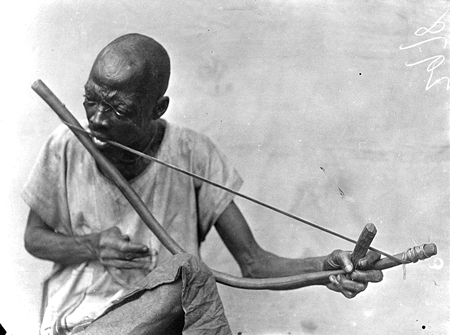|
Kandeka
Kandeka (also ''Khandeka'') was a martial art tradition of Kunene people in Angola, and could refer to stick-fighting, slapboxing, or a war dance. According to Desch-Obi, primary among these was stick fighting. Kandeka stick fighting was linked to cattle, and the male were expected to dominate and defend their herds. Sticks serve as essential tools for both pastoral subsistence activities and upholding social respect. The stick was a primary form of self-defense against surprise raids, wild animals, or own bulls. Kandeka could be a communal event, a personal pastime, a harmless sparring session, or a violent conflict over livestock or honor. The kandeka slap fighting provided younger boys with a chance to participate in combat games before the more earnest engolo matches commenced. Name The term kandeka is clearly related to ''okukandeka'', meaning “to avoid or prevent”. History The Kunene people were renowned for their exceptional martial skills. In the 1840s, Britis ... [...More Info...] [...Related Items...] OR: [Wikipedia] [Google] [Baidu] |
Engolo
N'golo (anglicized as Engolo) is a traditional Bantu martial art and game from Angola, that combines elements of combat and dance, performed in a circle accompanied by music and singing. It is known as the forerunner of capoeira. Engolo has been played in Africa for centuries, specifically along the Cunene River in the Cunene Province of Angola. Ngolo finds its inspiration in nature, involving the imitation of animal behaviors. Examples include mimicking a zebra's kicking motion or emulating the swaying of trees. This warrior dance is not merely ritualistic; serious injuries have been known to occur during its practice. The combat style of engolo encompasses a variety of techniques, including different types of kicks, dodges, and takedowns, with a particular emphasis on inverted positions. Many of the iconic capoeira techniques, such as '' meia lua de compasso'', scorpion kick, '' chapa'', '' chapa de costas'', '' rasteira'', L-kick, and others, were originally developed wit ... [...More Info...] [...Related Items...] OR: [Wikipedia] [Google] [Baidu] |
Martial Art
Martial arts are codified systems and traditions of combat practiced for a number of reasons such as self-defence; military and law enforcement applications; competition; physical, mental, and spiritual development; entertainment; and the preservation of a nation's intangible cultural heritage. The concept of martial arts was originally associated with East Asian tradition, but subsequently the term has been applied to practices that originated outside that region. Etymology "Martial arts" is a direct English translation of the Sino-Japanese word (, ). Literally, it refers to "武 martial" and "芸 arts". The term ''martial arts'' was popularized by mainstream popular culture during the 1960s to 1970s, notably by Hong Kong martial arts films (most famously those of Bruce Lee) during the so-called " chopsocky" wave of the early 1970s. According to John Clements, the term ''martial arts'' itself is derived from an older Latin term meaning "arts of Mars", the Roman god of w ... [...More Info...] [...Related Items...] OR: [Wikipedia] [Google] [Baidu] |
Duel
A duel is an arranged engagement in combat between two people with matched weapons. During the 17th and 18th centuries (and earlier), duels were mostly single combats fought with swords (the rapier and later the small sword), but beginning in the late 18th century in England, duels were more commonly fought using pistols. Fencing and shooting continued to coexist throughout the 19th century. The duel was based on a code of honor. Duels were fought not to kill the opponent but to gain "satisfaction", that is, to restore one's honor by demonstrating a willingness to risk one's life for it. As such, the tradition of dueling was reserved for the male members of nobility; however, in the modern era, it extended to those of the upper classes. On occasion, duels with swords or pistols were fought between women. Legislation against dueling dates back to the medieval period. The Fourth Council of the Lateran (1215) outlawed duels and civil legislation in the Holy Roman Empire agains ... [...More Info...] [...Related Items...] OR: [Wikipedia] [Google] [Baidu] |
War Dances
War is an armed conflict between the armed forces of states, or between governmental forces and armed groups that are organized under a certain command structure and have the capacity to sustain military operations, or between such organized groups. It is generally characterized by widespread violence, destruction, and mortality, using regular or irregular military forces. ''Warfare'' refers to the common activities and characteristics of types of war, or of wars in general. Total war is warfare that is not restricted to purely legitimate military targets, and can result in massive civilian or other non-combatant suffering and casualties. Etymology The English word ''war'' derives from the 11th-century Old English words and , from Old French ( as in modern French), in turn from the Frankish , ultimately deriving from the Proto-Germanic language">Proto-Germanic . The word is related to the Old Saxon , Old High German , and the modern German , meaning . History Anth ... [...More Info...] [...Related Items...] OR: [Wikipedia] [Google] [Baidu] |
African Martial Arts
African or Africans may refer to: * Anything from or pertaining to the continent of Africa: ** People who are native to Africa, descendants of natives of Africa, or individuals who trace their ancestry to indigenous inhabitants of Africa *** List of ethnic groups of Africa *** Demographics of Africa *** African diaspora ** African, an adjective referring to something of, from, or related to the African Union ** Citizenship of the African Union ** Demographics of the African Union **Africanfuturism ** African art ** *** African jazz (other) ** African cuisine ** African culture ** African languages ** African music ** African Union ** African lion, a lion population in Africa Books and radio * ''The African'' (essay), a story by French author J. M. G. Le Clézio * ''The African'' (Conton novel), a novel by William Farquhar Conton * ''The African'' (Courlander novel), a novel by Harold Courlander * ''The Africans'' (radio program) Music * "African", a song by Pete ... [...More Info...] [...Related Items...] OR: [Wikipedia] [Google] [Baidu] |
Culture Of Angola
The culture of Angola is influenced by the Portuguese. Portugal occupied the coastal enclave Luanda, and later also Benguela, since the 16th/17th centuries, and expanded into the territory of what is now Angola in the 19th/20th centuries, ruling it until 1975. Both countries share prevailing cultural aspects: the Portuguese language and Roman Catholicism. However, present-day Angolan culture is mostly native Bantu, which was mixed with Portuguese culture. The diverse ethnic communities with their own cultural traits, traditions and native languages or dialects include the Ovimbundu, Ambundu, Bakongo, Chokwe, Avambo and other peoples. Ethnic groups and languages There are over 100 distinct ethnic groups and languages/dialects in Angola. Although Portuguese is the official language, for many black Angolans it is a second or even third language. The three dominant ethnic groups are the Ovimbundu, Mbundu (better called Ambundu, speaking Kimbundu) and the Bakongo. There ar ... [...More Info...] [...Related Items...] OR: [Wikipedia] [Google] [Baidu] |
Call And Response
Call and response is a form of interaction between a speaker and an audience in which the speaker's statements ("calls") are punctuated by responses from the listeners. This form is also used in music, where it falls under the general category of antiphony. African cultures In some African cultures, call-and-response is a widespread pattern of democratic participation—in public gatherings, in the discussion of civic affairs, in religious rituals, as well as in vocal and instrumental musical expression (see call and response in music). African bondsmen and bondswomen in the Americas continued this practice over the centuries in various forms of expression—in religious observance; public gatherings; even in children's rhymes; and, most notably, in music in its multiple forms: blues, gospel, rhythm and blues, soul, jazz, hip-hop and go-go. Many work songs sung on plantations by enslaved men and women also incorporate the call and response format. African-American women work s ... [...More Info...] [...Related Items...] OR: [Wikipedia] [Google] [Baidu] |
Roda (formation)
Roda ( - wheel or circle) is the circular formation within which participants perform in any of several African and Afro-Brazilian dance art forms, such as engolo, capoeira, maculelê and samba de roda. By extension, the whole event may be called a ''roda'' (as in "We will have a roda next Saturday"). Part of the etiquette of the roda means that the people in it should try to keep the roda circular and fill in any "gaps" that may appear if someone leaves the roda; in other words, the people should be evenly distributed in the circumference of the roda, especially if there are not many people in it. Capoeira circle In the capoeira circle, roles are interchangeable: observers can become participants, contestants become spectators, and musicians rotate. The soloist leads, with observers responding collectively, and roles shift throughout the game—a tradition found in Bantu and Yoruba ethnic groups. The people who form the roda will take turns (with or without predefined o ... [...More Info...] [...Related Items...] OR: [Wikipedia] [Google] [Baidu] |
Conflict Resolution
Conflict resolution is conceptualized as the methods and processes involved in facilitating the peaceful ending of Conflict (process), conflict and Revenge, retribution. Committed group members attempt to resolve group conflicts by actively communicating information about their conflicting motives or ideologies to the rest of group (e.g., intentions; reasons for holding certain beliefs) and by engaging in collective negotiation. Dimensions of resolution typically parallel the dimensions of conflict in the way the conflict is processed. Cognitive resolution is the way disputants understand and view the conflict, with beliefs, perspectives, understandings and attitudes. Emotional resolution is in the way disputants feel about a conflict, the emotional energy. Behavioral resolution is reflective of how the disputants act, their behavior. Ultimately a wide range of methods and procedures for addressing conflict exist, including negotiation, mediation, mediation-arbitration, diplomac ... [...More Info...] [...Related Items...] OR: [Wikipedia] [Google] [Baidu] |
1850s
The 1850s (pronounced "eighteen-fifties") was a decade of the Gregorian calendar that began on January 1, 1850, and ended on December 31, 1859. It was a very turbulent decade, as wars such as the Crimean War, shifted and shook European politics, as well as the expansion of colonization towards the Far East, which also sparked conflicts like the Second Opium War. In the meantime, the United States saw its peak on mass migration to the American West, that particularly made the nation experience an economic boom, as well as a rapidly increasing population. The last living person from this decade was Ada Roe, who died in 1970. Wars * Crimean War (1853–56) fought between Imperial Russia and an alliance consisting of the United Kingdom of Great Britain and Ireland, the Second French Empire, the Kingdom of Sardinia and the Ottoman Empire. The majority of the conflict takes place around Crimea, on the northern coasts of the Black Sea. * On 8 October 1856 the Second Opium War ... [...More Info...] [...Related Items...] OR: [Wikipedia] [Google] [Baidu] |
Angola
Angola, officially the Republic of Angola, is a country on the west-Central Africa, central coast of Southern Africa. It is the second-largest Portuguese-speaking world, Portuguese-speaking (Lusophone) country in both total area and List of countries and dependencies by population, population and is the List of African countries by area, seventh-largest country in Africa. It is bordered by Namibia to the south, the Democratic Republic of the Congo to the north, Zambia to the east, and the Atlantic Ocean to the west. Angola has an Enclave and exclave, exclave province, the province of Cabinda Province, Cabinda, that borders the Republic of the Congo and the Democratic Republic of the Congo. The capital and most populous city is Luanda. Angola has been inhabited since the Paleolithic, Paleolithic Age. After the Bantu expansion reached the region, states were formed by the 13th century and organised into confederations. The Kingdom of Kongo ascended to achieve hegemony among the ... [...More Info...] [...Related Items...] OR: [Wikipedia] [Google] [Baidu] |





